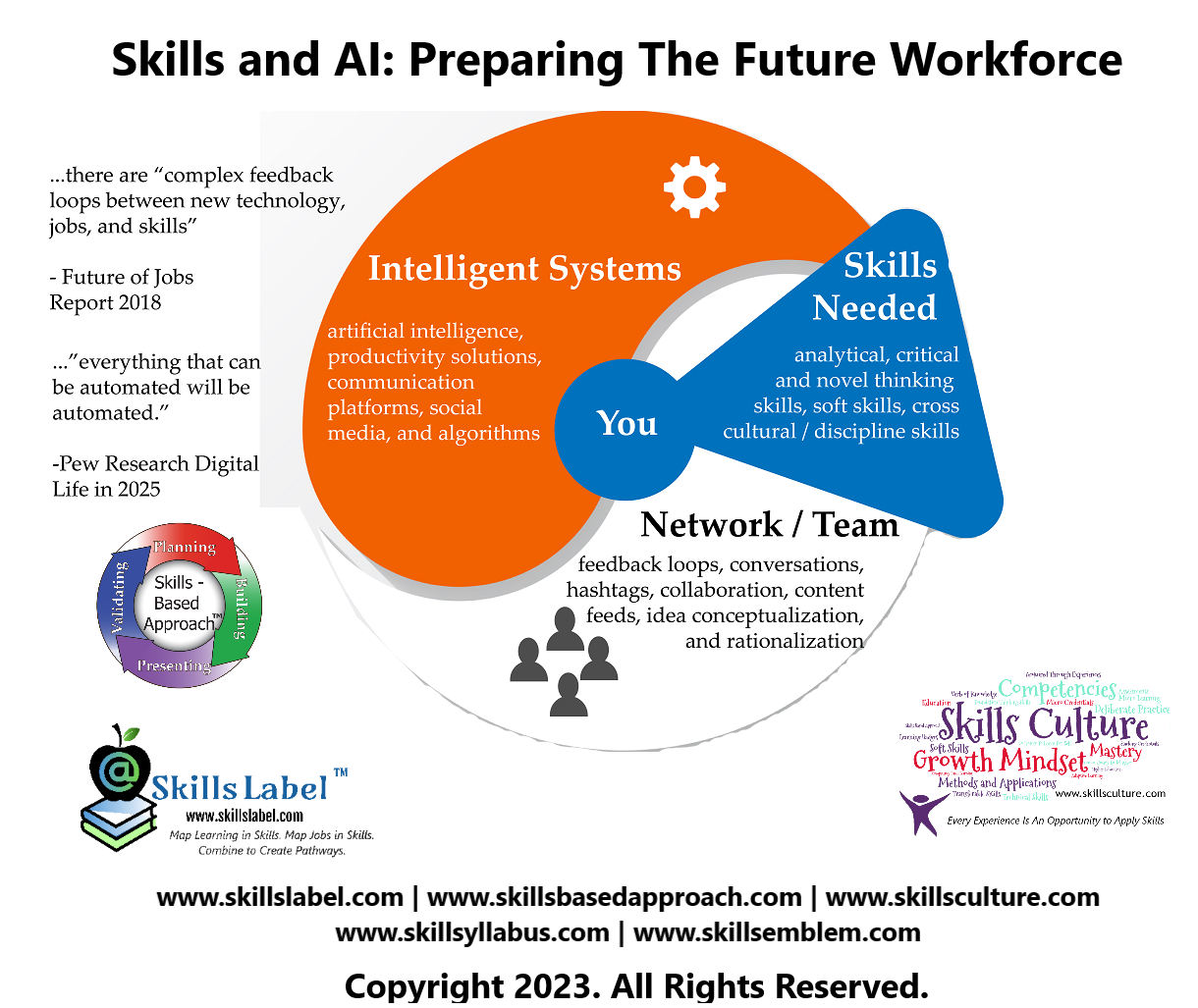The advent of mainstream AI might (should) have been a conversation this holiday season – particularly with the (I argue timed) release of ChatGPT for the public to try. There are a few ways AI is going to influence learning and job preparation, more specifically mapping pathways in skills.
First, many technical skills are going to become irrelevant more quickly.
There are already no-code app builders. I read an article where a Berkeley professor claimed AI will replace programmers in ten years. This was a recent observation of mine too.
In creating apps in Microsoft and Google coding environments, the changes are remarkable since I started ten years ago. Notably the auto-suggest during and after adding lines of code and the analysis of the entire project is incredible. Future changes will only get better as the coding experiences are all sent back to Microsoft and Google. I agree with the professor.
So if you are young adult should you learn programming skills or the math, data science, AI, machine learning to corral the AI systems? What does this mean for an average college student or blue-collar worker in this field (a computer science degree is coveted and difficult to achieve)?
Second, the applications and methods behind skills are going to change.
For a majority of professions, maintaining skills is a lifelong requirement – including a car mechanic.
In ten years from now, (hopefully) most cars are electric and no longer require a standard combustible engine. AI and machine learning are already embedded in all aspects of the car and will get only more sophisticated. A car mechanic must learn new technical skills and will have to maintain them throughout their career.
However, I think both of these situations plays into the advantage of a skills framework (like Skills Based Approach, Skills Culture, and Skill Label). If skills are not used anymore, simply define and add new skill(s) to replace them. If the demands to practice a skill properly changes, re-skill and up-skill to stay relevant.
I also think regarding the second question, society needs to consider the effects of a super techie class who controls the AI versus the vast majority of those who already in or want to pursue careers in the field. Again, thinking in skills is part of the solution.
There are AI applications that are going to suggest what skills a learner or worker should work on and what is next in a pathway. I cannot count the number of leaders who I spoke with asking me what we are doing with AI and machine learning in our skills framework.
There are a number of reasons why AI should help in the suggestion process.
First, adopt a more scientific way to define and quantify skills in learning and jobs. I make the analogy to use skills and Skill Points to define learning expectations and job requirements like using atoms and coefficients to define substances. Of course, this could never be achieved because one is governed by the laws of nature. So given the complexity, AI and machine learning is required.
Second, unwillingness of higher education institutions to move forward. The standard education and higher education process is established across centuries. It is a difficult to convince colleges, deans, and professors to adopt a skills framework (like ours). From my own experiences, I met with a number of them. (Many showed me the door before the meeting, though, a couple years later, some are now starting their own.) I think this is why the leaders ask me regarding AI, they relate: how do we keep moving forward to define learning pathways in skills when there is this push back from many of those providing the learning?
The push-back is often unfounded. When I (and other leaders) pitch our skill frameworks, we are not suggesting changing the actual learning content but rather a small amount of time helping us in the definition process.
Third, the shear breadth (number) and depth (time to learn) of skills. There are some skills databases that number 60,000+ skills. Some skills like critical thinking, legal reasoning, economic analysis, and data science require decades to cultivate. Therefore, like the first point, the complexity of problem requires AI and machine learning.
For all these reasons, in our patent for learning, course, and job labels (in skills), we suggest two uses of AI and machine learning: create the labels automatically with minimal human interaction required (2); and process the complexity of defining and quantifying skills in learning (1 and 3).
In addition, as we build our apps and show our labels, we are choosing clarity. As skills are suggested in an interaction, the goal is to state how and why they were suggested. With Skill Points, the derivation is clear and supported by a human peer review process.
Preparing our workforce for a future with AI, thinking in skills is part of the answer.
